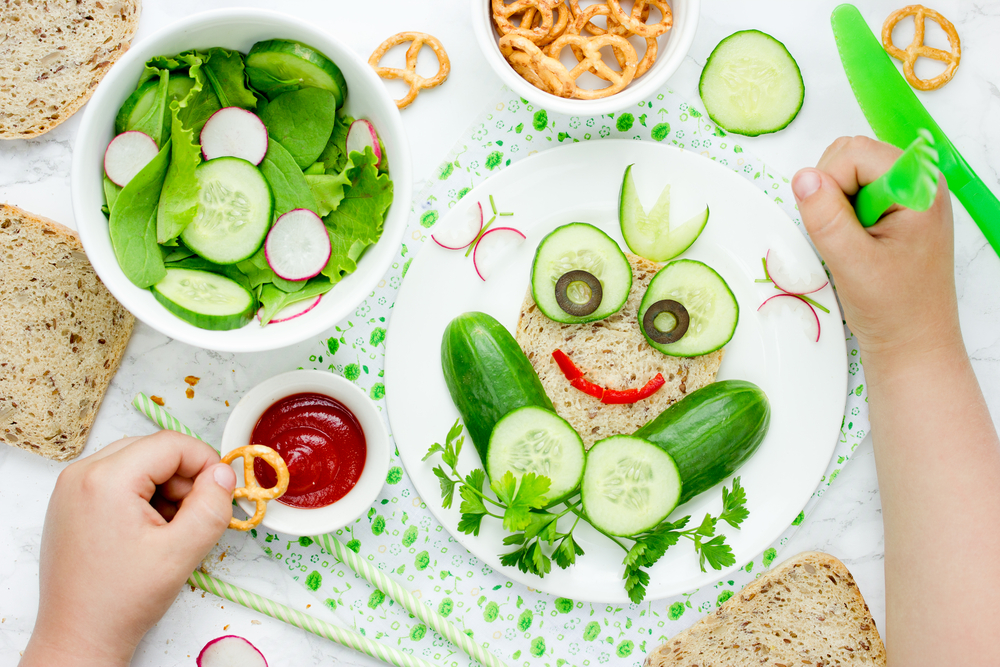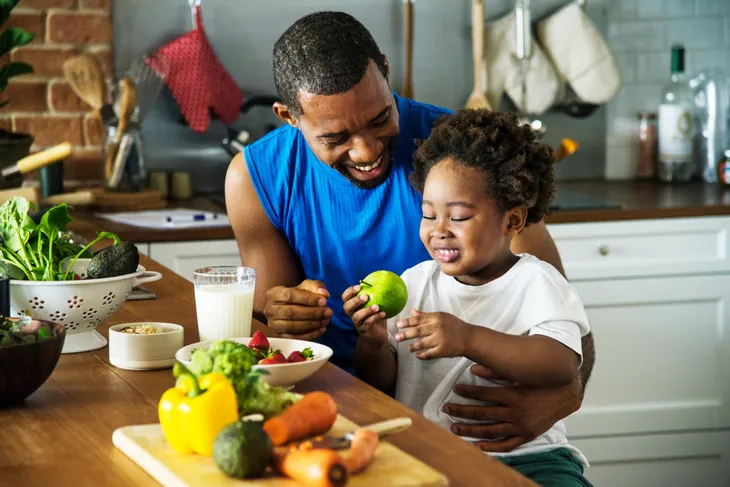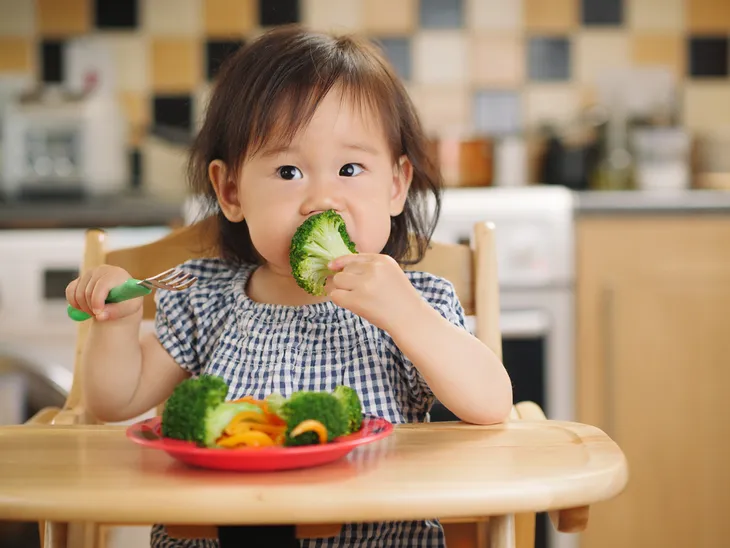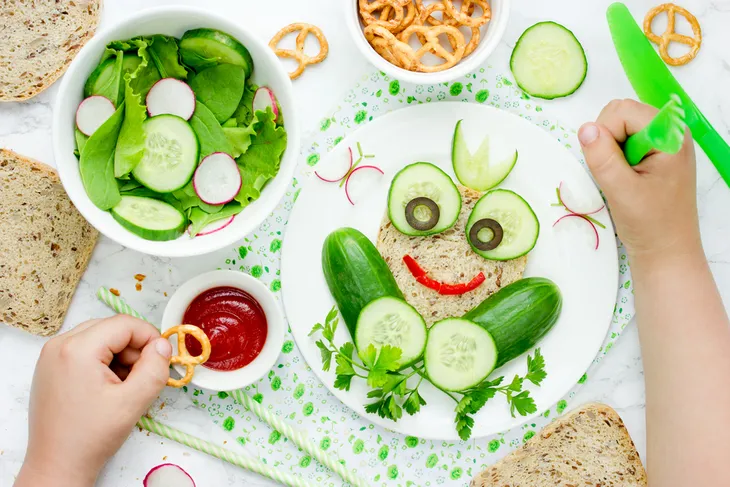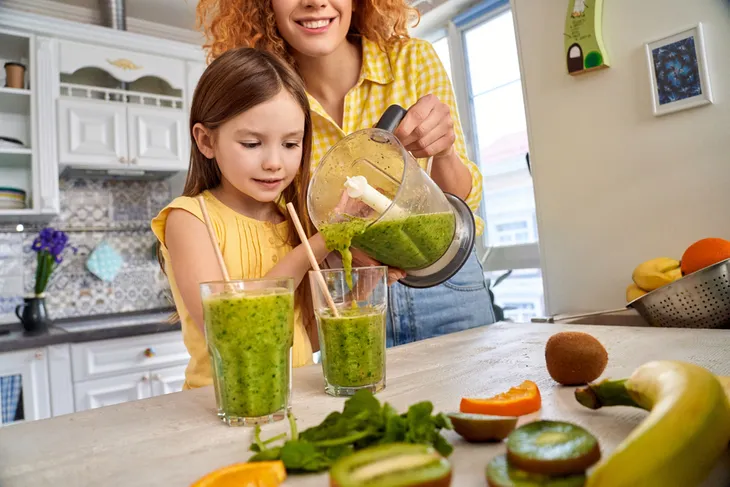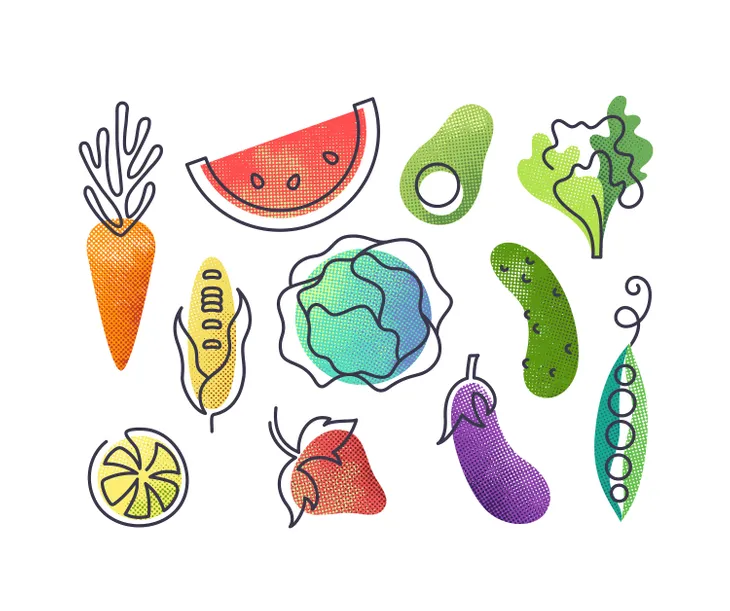A plate full of veggies may look enticing to most grown-ups, but the colorful array of raw vegetables may not be enough to encourage your little veggie monster. People who eat fruits and vegetables as part of a healthy diet have a reduced risk of some chronic disease. It’s not surprising because veggies are packed full of nutrients vital to nourish your body.
Eating vegetables provides significant health benefits for kids and grown-ups alike, but sometimes we all need a little encouragement. Here are eight tips to make vegetables fun for your kids to eat…
Lead by example
If you’re kids see you eating your vegetables, chances are they’ll eat more of them. It’s not fair to expect your kids to eat them, if you don’t eat them yourself, even if you may not love them. If there is a particular type of vegetable that you don’t like, offer two or three different kinds with dinner. That way you can still show your child you’re eating your veggies, while avoiding the kind you don’t like.
If you constantly cater towards picky eating, you’ll create a picky eater. Kids eat what they know and they won’t ask for special meals if they don’t know it’s an option. Try sweet potato fries instead of traditional fries or spaghetti squash instead of pasta. You may be surprised that you and your kids love them.
Get the Kids in the Kitchen
Kids love to pretend to play house, so why not take the game into the kitchen and have them help you prepare dinner. If you get them involved with preparing veggies for dinner, chances are they’ll want to eat them. Mashed potatoes are a great place to start because they’re kid friendly and easy to prepare.
A trip to a local farm or farmers market is a great outing to teach kids where food comes from and what is involved with growing the crops that we buy at the grocery store. This is especially important for urban kids who haven’t ever had a veggie garden of their own.
Enforce the One-Bite Rule
How do you know you don’t like it if you don’t try it? Kids can be stubborn and often they can outlast their parents when it comes to a battle of wills, but as a parent, it’s your responsibility to nurture healthy eating habits.
A general rule that most parents enforce, is the one-bite rule. It’s fairly simple. Encourage your child to try one bite. If they don’t like it, that’s OK, because at least they tried it. And don’t give up. Generally it takes a few tries of a certain type of food before a child likes it.
Make Vegetables Fun
Who says veggies need to be boring. Aside from preparing vegetables in a variety of ways, you can make consuming veggies more fun, use your imagination. Instead of regular carrots, use baby carrots and pretend you’re a giant. Broccoli trees make a great addition to mashed potatoes.
There are also a variety of heirloom vegetables like purple carrots, tomatoes, peppers and potatoes that can make ordinary vegetables extraordinary. Preparation and cooking methods are similar to traditional veggies, so next time you’re in the grocery store, try something new.
Hide Vegetables Where They Aren’t be Expected
The Internet is full of great recipes where veggies are hidden, especially desserts. Not only are they a healthier alternative to regular desserts, they add moisture and nutrients. Muffins, brownies, cakes, cookies, even pudding can be made to incorporate vegetables. And best of all, you don’t even have to tell the kids. Chances are they won’t even notice.
Try chocolate pudding made with avocados. Brownies made with beets, chocolate cake made with grated zucchini, cookies made with pumpkin, muffins made with carrots–the options are endless. You may even be surprised that the kids prefer the healthier version to their favorite dessert.
Offer a Variety of Vegetables
Kids get bored easily. In fact, so do grown-ups. When we have such a variety of vegetables available at the grocery store, why make the same thing over and over again? If you’re not sure how to prepare a certain type of vegetable or you’re looking for a new recipe, consider taking a cooking class. Many local grocery stores have realized there is a demand for these classes and they offer a wide array of family friendly cooking lessons.
Don’t be scared to try new things. Most vegetables can be prepared in a variety of different ways. Broccoli for example is quite diverse. It can be steamed, baked, roasted, sauteed or it can be added to casseroles, stir fry’s or a gratin.
Don’t Make a Big Deal if They Don’t Finish
The worst possible thing you can do if your child doesn’t like something, is to make them sit at the table until they finish everything on their plate. Some kids just don’t like certain things. The old school parenting rule was that you had to finish everything, but this can lead to epic battles of wills between parent and child.
If you enforce the one-bite rule and they try everything that is served for dinner, consider that a success. For many of us, we have an emotional reaction to certain types of food because we were forced to eat it. This negative response lasts with us into adulthood and even though we may develop a liking for something like Brussels sprouts or peas, in our minds, we’ll always hate it because we were forced to eat it.
Reward Good Behavior
How many times were you told as a child that you would get dessert if you ate all your vegetables? Kids love to be rewarded, but the reward for eating their vegetables doesn’t have to be dessert. A phrase of encouragement or recognition for trying something new goes a long way.
If your child knows how happy it makes you to try new things, chances are they’ll try it again and again just to see your positive reaction. Of course you can always use the dessert rule, but kids should learn to enjoy all types of food without the sugary incentive.
